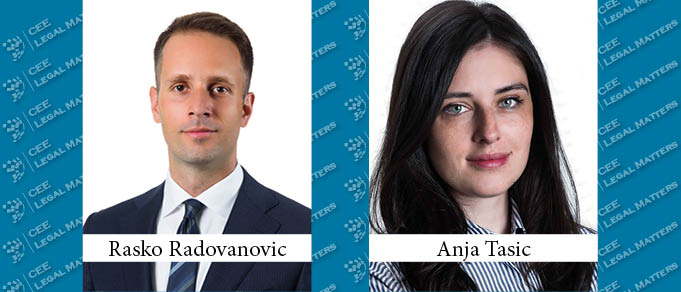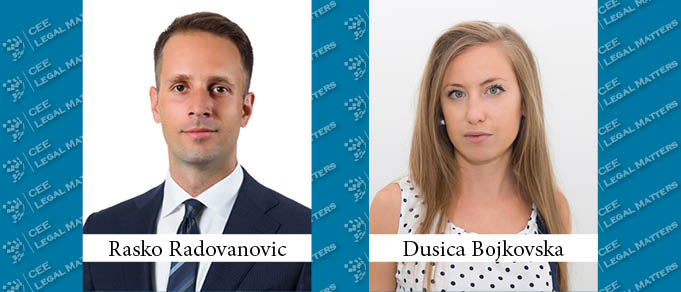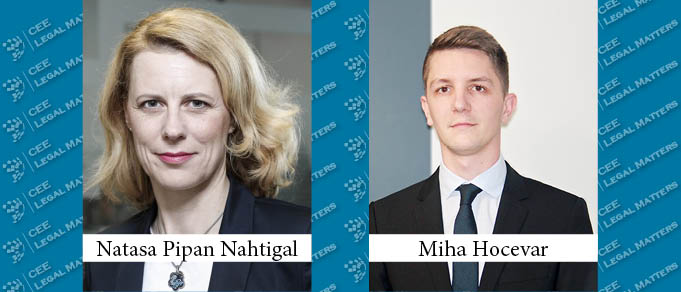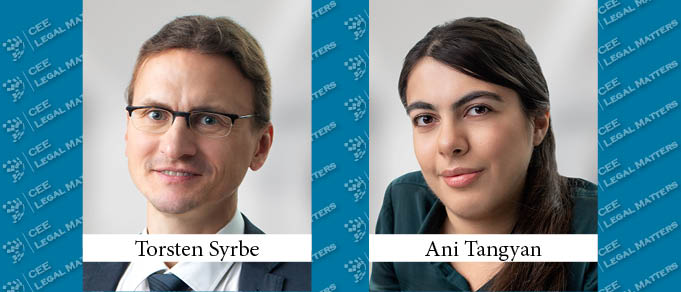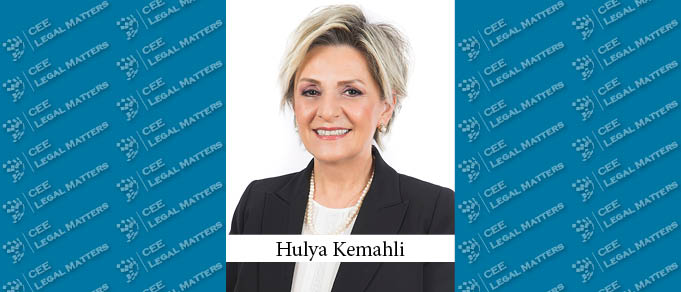Montenegro first introduced a State aid control framework in 2011 in preparation for initiating the EU accession process. Almost ten years later, as the candidate country currently furthest along its accession journey, Montenegro has largely harmonized its State aid framework with the EU acquis. Still, the current level of enforcement and transparency leave a lot of room for improvement.
Gun-Jumping in M&A Transactions in North Macedonia
In merger control, the standstill obligation requires that the parties refrain from implementing a concentration before obtaining the required merger clearance. This duty represents a cornerstone of many merger control regimes and is intended to protect the structure of the market and the consumers from any damage that could result from a transaction that had not been properly examined and could turn out to be anti-competitive.
Serbia: Mind the Gap! European Union and Serbia
It’s no secret that competition law across the Western Balkans has been greatly shaped by EU accession, with local developments regularly driven by EU practice and the EU’s regulatory framework.
Slovakia: New Competition Act in the Making
The Slovak Competition Act (No. 136/2001 Coll. as amended) has been the cornerstone of Slovak competition law for almost two decades and has seen its share of major amendments. The Slovak Competition Authority has now decided to table a new Competition Act and has submitted a draft for preliminary consultation. The draft transposes the ECN+ Directive (Directive (EU) 2019/1) and addresses a number of competition law issues that have been debated for years in Slovakia.
Slovenia: Could Covid-19 Investment-Enhancing Measures Affect the Autonomy of the Slovenian Competition Regulator?
In addition to the effect of the newly introduced FDI rules, the upcoming post-epidemic period in Slovenia will see extensive efforts to revive the economy. On May 29, 2020, Slovenia’s Parliament adopted the Intervention Act to Remove Obstacles to the Implementation of Significant Investments to Start the Economy After the COVID-19 Epidemic to restart economic activity and growth in key investment sectors.
Croatian Competition Agency Confirms Coca Cola’s Compliance with Commitment Decision and Closes Investigation
Earlier this month, the Croatian Competition Agency confirmed that Coca Cola HBC Hrvatska d.o.o. had complied with the commitments the company had offered, and which had been accepted by the CCA, in the course of an investigation of vertical restraints imposed by Coca Cola on its distributors (most notably exclusive purchasing and tying arrangements). Early on, the CCA expressed concern that Coca Cola’s practices would constitute infringements under Articles 8 and 13 of the Croatian Competition Act (essentially corresponding to Articles 101 and 102 of the Treaty on the Functioning of the European Union).
Poland: The Polish Competition Authority Becomes Both Merger Control and Foreign Investment Restrictions Watchdog
The amendment to the Act on the Control of Certain Investments (the “Act”) that came into effect on July 24, 2020 has vested the President of the Office of Competition and Consumer Protection – the UOKIK – with broad new powers. The new rules are temporary and will be in force for 24 months. On July 21, 2020, the UOKIK issued 50-page long, detailed procedural guidelines, which unfortunately are not available in English.
Austria: Austrian Cartel Court Finds Abuse of Dominant Position by Peugeot Vis-A-Vis its Independent Dealer
On May 12, 2020 after a long-lasting proceeding between the general importer Peugeot Austria and Austrian Peugeot dealer Buechl, the Austrian Cartel Court decided in first instance that Peugeot Austria had abused its market power vis-à-vis Buechl. The dispute revolved around the imposition of contractual conditions by Peugeot which, in the opinion of the court, put dealers at a substantial economic disadvantage. Peugeot Austria has expressed its surprise at the court’s decision and has announced that it will file an appeal.
Hungary: Recent Competition Law Decisions to Challenge Your Data Collection Practice
Some experts say that “data is the new oil,” but oil can catch fire easily without proper handling. When you hear concerns about the collection of personal data, you might first associate them with data protection regulations, but competition law can also seriously affect your business. Competition authorities have intervened recently against platforms by using patterns that might be widely applied to other companies. Is this just the beginning? Who is in danger?
Russia: A Step on the Road to Improved Antitrust Compliance
Most multinational corporations have internal antitrust compliance policies in place for their global businesses, covering their Russian operations. Following years of debate, Russia has enacted a law meant to improve antitrust compliance by regulating internal compliance policies (the “Compliance Act”).
Expat on the Market: Interview with Stephanie Beghe Sonmez of Paksoy
An interview with Stephanie Beghe Sonmez of Paksoy, about her path from France to Turkey.
Inside Out: Turkey’s First Unicorn
On June 3, 2020, CEE Legal Matters reported that White & Case and its associated Turkish firm, GKC Partners, had advised interactive entertainment company Zynga Inc. on its USD 1.8 billion acquisition of Istanbul-based mobile gaming company Peak Oyun Yazilim ve Pazarlama, A.S. Baker McKenzie, working with its Turkish affiliate, the Esin Attorney Partnership, advised Peak on the transaction, which represented the largest acquisition of a start-up in Turkey to date, and makes Peak the country’s first “unicorn.” Dentons, along with its affiliate Balcioglu Selcuk Ardiyok Keki Avukatlik Ortakligi, advised selling shareholder Hummingbird Ventures CVA, Abcoo advised Peak Founder and CEO Sidar Sahin, the Verdi Law Firm advised selling shareholders Earlybird Verwaltungs GmbH, Evren Ucok, and Demet Suzan Mutlu Ucok, and BTS & Partners advised selling shareholder Endeavour Catalyst.
Turkish Banking Sector 2020
The year started with expectations of growth and stability. Along came COVID-19, and the focus shifted to stability and survival. The Turkish banking sector, used to market turmoil, took proactive steps, and the authorities matched the effort.
Automatic Exchange of Information in Tax Matters
As national borders lose their importance when it comes to capital mobility, tax revenues have decreased significantly and tax avoidance has become a matter of common concern for countries. Therefore, exchange of information in tax matters has become one of the most important topics on the agenda of countries and international organizations in recent years.
A Review of Biometric Data Processing Systems Usage Under the Personal Data Protection Law and Secondary Legislation
Personal data, one of the most discussed topics in the legal world, is protected in many countries, and it is regulated in Turkey under the Personal Data Protection Law, number 6698 (the “Law”), and secondary legislation. In addition, the decisions of the Personal Data Protection Board established under the Law (the “Board”), provide insight on the rules applicable to data controllers and processors.
Turkish Capital Markets 2020 Overview
The Turkish capital markets have undergone many regulatory amendments and adjustments this year to provide a more robust environment in terms of transparency, competition, and stability for investors. As regulators have kept manipulative transactions in their sights to overcome the panic created by COVID-19, the Turkish Capital Markets Board (CMB) has imposed many sanctions and penalties.
M&A Deals During the COVID-19 Outbreak
COVID-19 has swiftly become a global outbreak, affecting not only people’s lives but also the global economic conjuncture. Like most countries, the Republic of Turkey, has adopted several measures to eliminate or lessen impacts of COVID-19 on the economy. With this article, we will provide an overview of the Turkish legal market and key legislation enacted during the COVID-19 outbreak.
Tiptoing in Turkey
A CEE Legal Matters special report on how international firms operate in Turkey – and the echoing silence that greets attempts to investigate.

